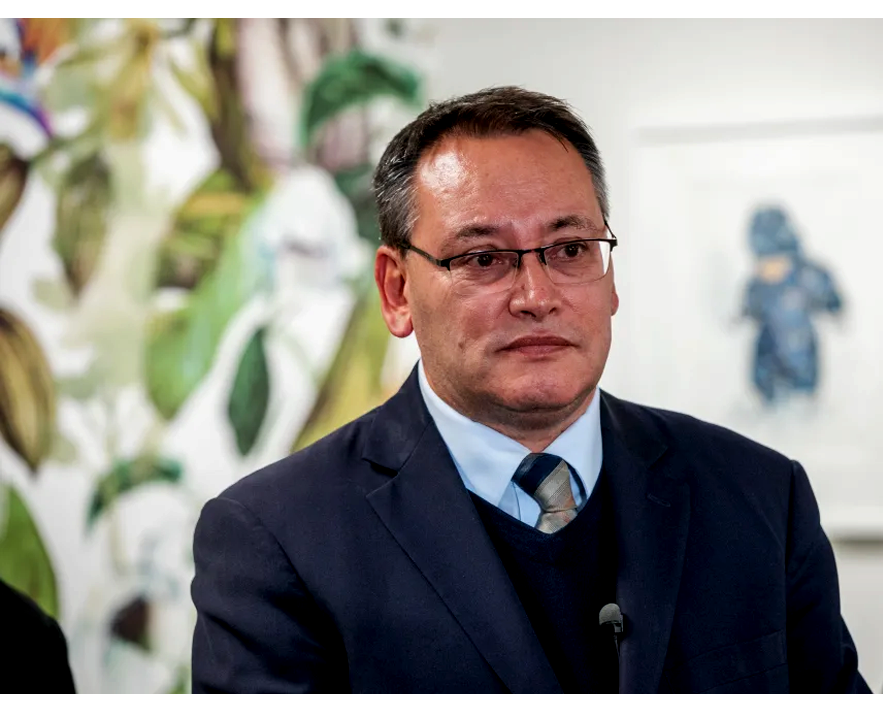Health Minister Shane Reti has confirmed that cervical screening will continue to be provided free of charge for women at higher risk of developing cancer. He emphasized the government’s steadfast commitment to improving cancer outcomes, noting that screening programs play a pivotal role in facilitating early diagnosis and ensuring timely treatment.
During the previous election campaign, the Labour Party pledged to make cervical screening free for individuals aged 25 to 69, a policy that garnered support from healthcare experts. Dr. Reti underscored the significance of maintaining funding for screening high-risk women, alongside the recent introduction of HPV self-tests, which have significantly bolstered screening participation rates.
“Cervical screening and HPV immunizations offer substantial protection against cervical cancer,” Dr. Reti stated emphatically. “Since the establishment of the National Cervical Screening Programme in 1990, New Zealand has witnessed a remarkable 50 percent reduction in cervical cancer incidence and a 60 percent decline in cervical cancer-related deaths.”
Highlighting the vulnerability of women who remain unscreened or under-screened, Dr. Reti pointed out that approximately 85 percent of cervical cancer cases occur within this demographic. Recognizing the financial barriers that hinder screening, especially among those with lower incomes, the initiative ensures that holders of community service cards are also eligible for free screening.
Dr. Reti stressed that the allocation of funding is targeted towards groups with the highest clinical need and greatest risk, including Māori and Pacific women. He urged eligible individuals to take advantage of screening opportunities, emphasizing the convenience and accessibility of the process, particularly with the availability of self-testing options.
“Regular screening plays a crucial role in early detection, subsequent testing, and timely treatment,” Dr. Reti emphasized. “It enables healthcare providers to identify early warning signs before they progress into more advanced stages of cancer.”
The initiative to provide zero-cost cervical screening is supported by funding from Health New Zealand, reflecting the government’s ongoing commitment to prioritizing preventive healthcare measures. This approach aims not only to reduce the incidence of cervical cancer but also to enhance outcomes for affected individuals through proactive and accessible screening services.
Dr. Reti’s affirmation of continued free screening underscores the government’s proactive stance in healthcare policy, particularly concerning cancer prevention and early intervention. By eliminating financial barriers, the initiative aims to encourage broader participation in screening programs, ultimately contributing to improved health outcomes across New Zealand.
The importance of cervical screening extends beyond individual health benefits to encompass broader public health goals, including reducing healthcare costs associated with advanced cancer treatments. Dr. Reti emphasized the cost-effectiveness of preventive measures, noting that early detection through screening translates into reduced healthcare expenditures in the long term.
In alignment with international best practices, New Zealand’s cervical screening program continues to evolve, incorporating advancements in technology and healthcare delivery to meet the needs of diverse communities. Dr. Reti highlighted the role of HPV self-tests as a recent innovation aimed at enhancing convenience and accessibility for screening participants.
As part of ongoing efforts to enhance screening effectiveness, Dr. Reti reiterated the government’s commitment to evaluating and refining screening strategies based on clinical evidence and patient feedback. This approach ensures that screening programs remain responsive to evolving healthcare needs and continue to deliver optimal outcomes for individuals and communities alike.
In conclusion, Dr. Reti’s confirmation of continued free cervical screening underscores the government’s commitment to advancing public health priorities through accessible and proactive healthcare initiatives. By ensuring that screening services remain free and accessible to high-risk populations, the initiative aims to reduce the burden of cervical cancer and improve health outcomes across New Zealand. -TIN Bureau


